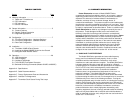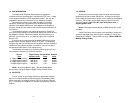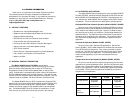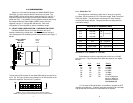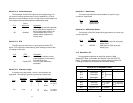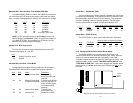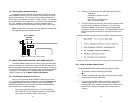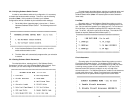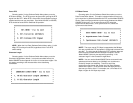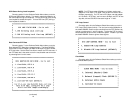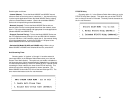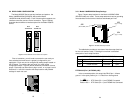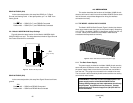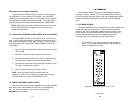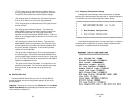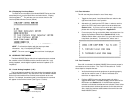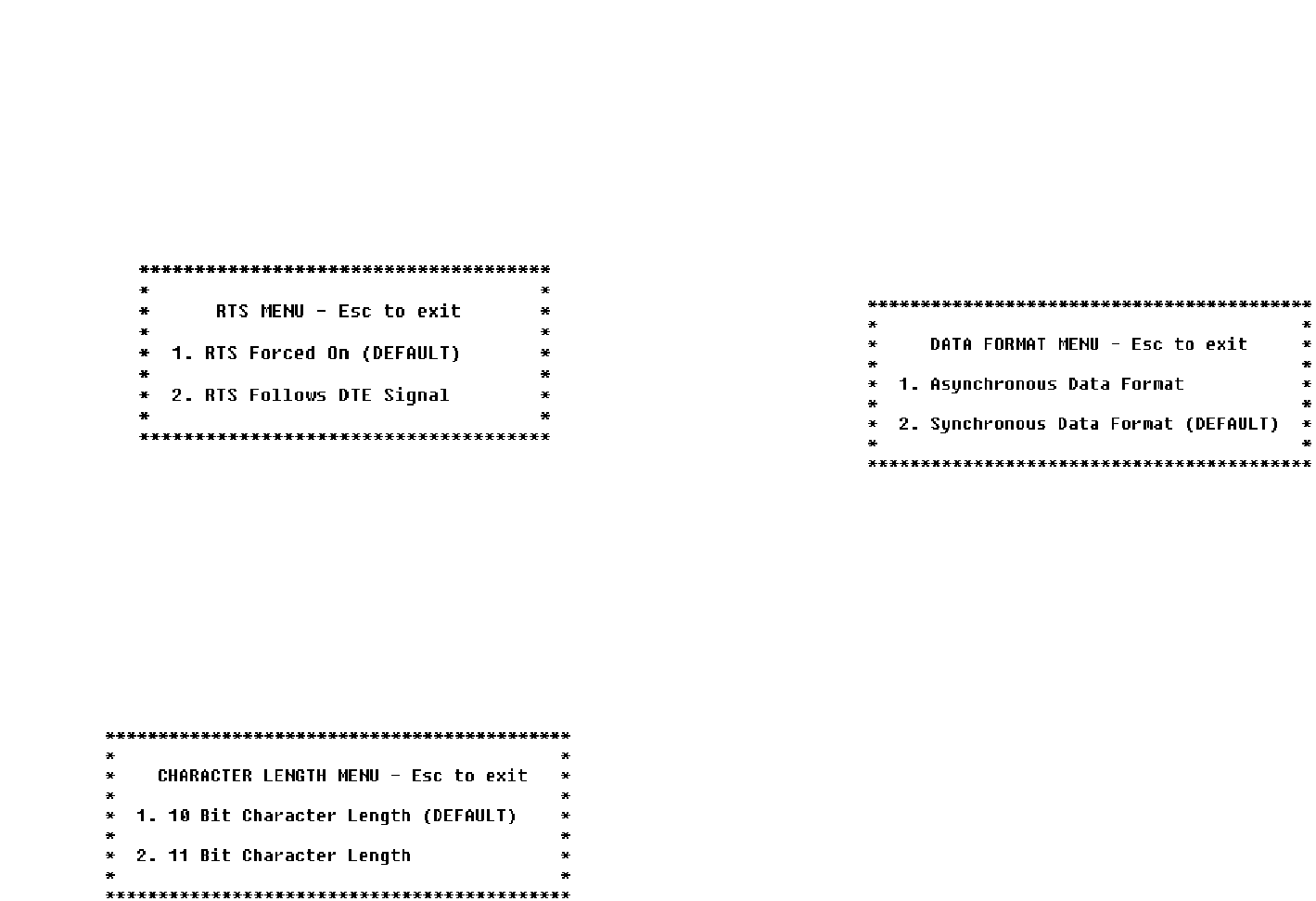
DTE Data Format
Choosing option 5 in the Software Switch Menu takes you to the
Data Format Menu (below). This option controls whether an async-to-
sync conversion is performed between the DTE and the Model 2500RC
Series. (Data is always transferred synchronously between two Model
2500RC Series units.) For an
asynchronous
DTE, select the
asynchronous data format
1,2
; for a
synchronous
DTE, select the
synchronous data format.
NOTE
1
: The async rate of 57.6 kbps is supported at the 56 kbps
line rate, provided the DTE equipment is configured to transmit two
stop bits. The extra stop bit reduces the DTE’s effective data rate
to allow synchronization with the 56 kbps line speed.
Set the
Model 2500RC Series for two stop bits by selecting “11 bit
character length” in the Character Length Menu.
NOTE
2
: You can use the Model 2500RC Series to transmit lower-
speed asynchronous data (up to 9.6 Kbps) over synchronous
circuits by simple over-sampling. To do this, select the
synchronous data format and set the line Line Rate (Software
Switch Menu option 1) to at least four times that asynchronous
data rate you wish to send. For example, use a Line Rate of 9.6
Kbps or higher for 2.4 Kbps async data.
Force RTS
Choosing option 3 in the Software Switch Menu takes you to the
RTS Menu (below). The RTS input can be forced ON, ignoring the RTS
signal from the DTE. When RTS is forced ON, the transmitter is always
enabled and the user may send data. On a Model 2510RC or 2520RC,
RTS should be forced ON for Switched-56 operation.
NOTE: When the Line Rate (Software Switch Menu option 1) is 64
Kbps, RTS is always forced ON, regardless of the Force RTS
switch setting.
Character Length
Choosing option 4 in the Software Switch Menu takes you to the
Character Length Menu (below). In asynchronous data format, the
Model 2500RC Series supports 10-bit and 11-bit character lengths. Set
this option according to the characteristics of the data being
transmitted.
17 18



